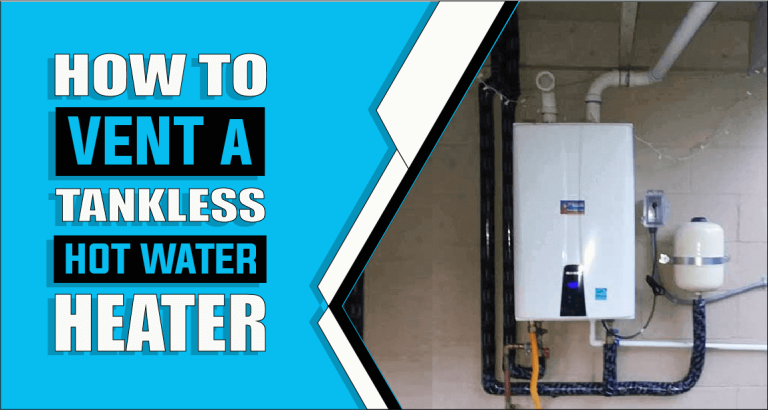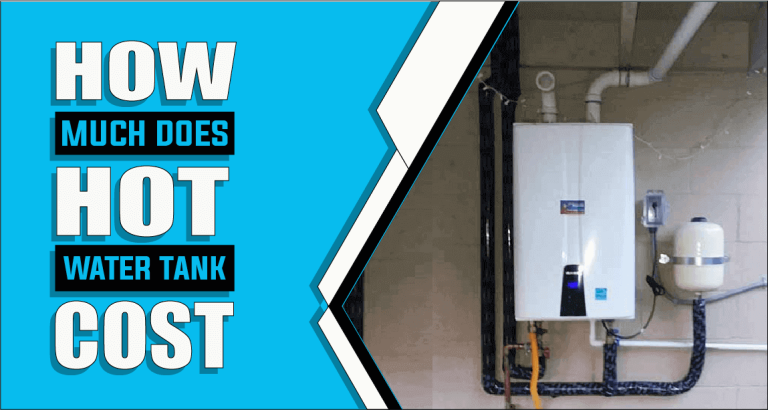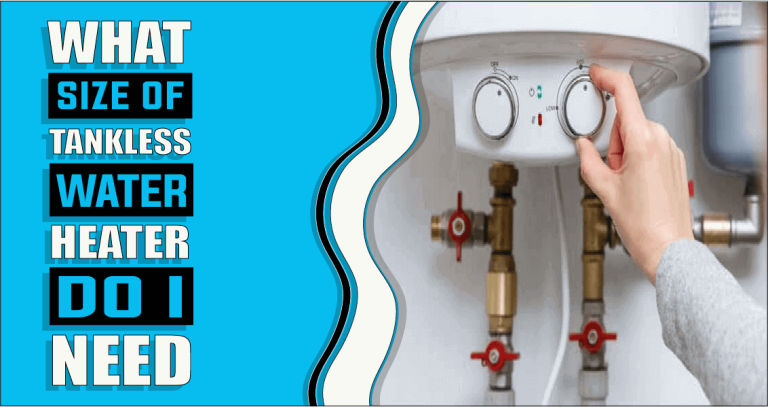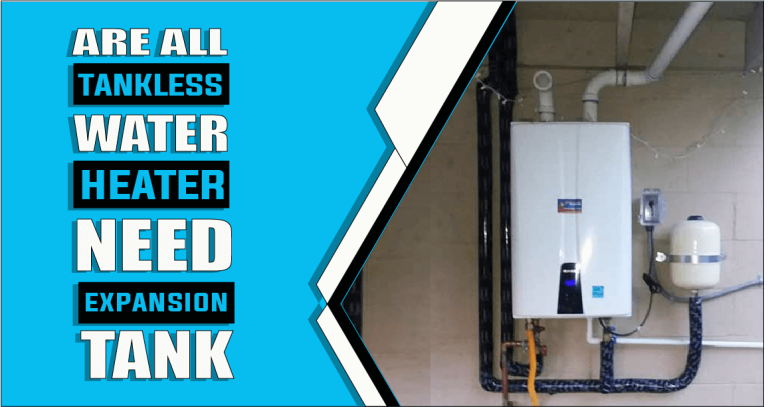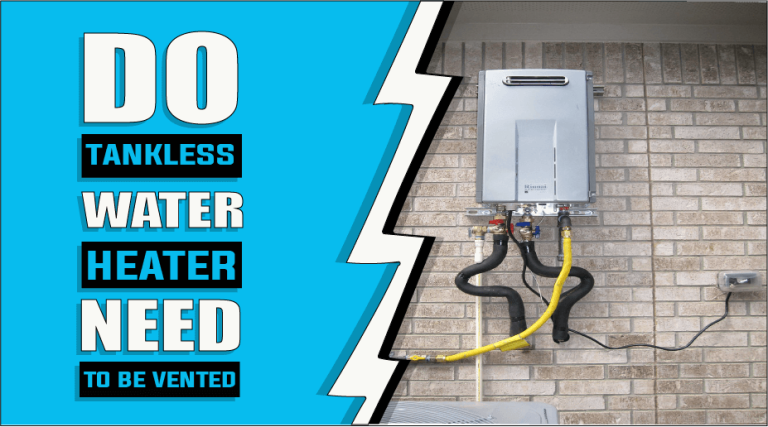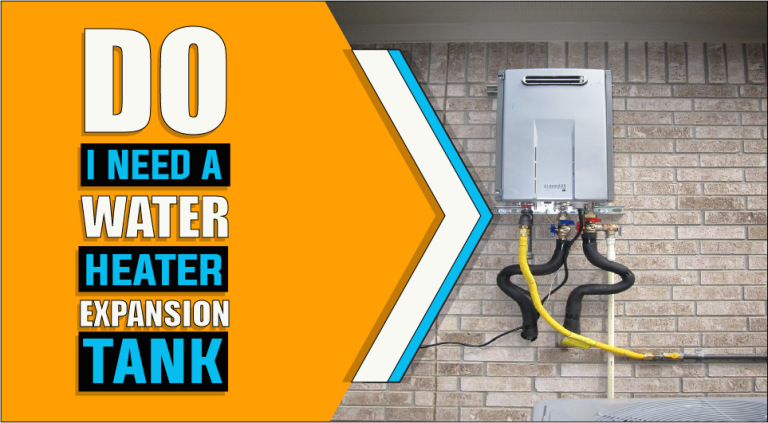Which Is Better Gas Or Electric Tankless Water Heater – The Truth Reveals
Are you confused about deciding between an electric or gas tankless water heater? With so many factors to consider, it can be difficult to ascertain which one is the best for your home. Since there are so many differences between gas and electric tankless water heater from installation, maintenance, and running costs to energy efficiency and reliability. So it can be tricky to choose the right kind of heater. Fortunately, we’re here to help you. In this blog post, we’re going to take a closer look at which is better gas or electric tankless water heater, and will take you through the pros and cons of each type so that you can make an informed choice with complete confidence. Keep reading to find out more!
Exploring which is better gas or electric tankless water heater
When deciding between a gas or electric tankless water heater, there are several factors to consider. Gas models are typically more powerful and can heat water more quickly than electric versions. Additionally, because they use natural gas or propane as an energy source, they have the potential to be more cost-effective in the long run.
On the flip side, electric tankless water heaters are usually smaller in size, making them ideal for those with limited space. They also require no venting as gas models do, so installation is usually less expensive and simpler. However, electric models generally consume more energy than gas ones during operation which can lead to higher monthly utility bills.
Another important consideration when choosing between a gas or electric tankless water heater is climate differences since cold climates will require larger units and higher output from either option to remain effective.
Ultimately, the best choice depends on one’s budget, needs, and preferences; however, it’s important to note that both options have proven reliable and efficient when installed properly by a qualified professional.
Some factors what type of tankless water heater is best
Do you need a little tankless water heater in your life? If so, then it’s time to decide between gas and electric tankless water heaters. Both have their advantages, each varying depending on factors such as local fuel costs or the size of the home they’ll be serving. So let us help you make that perfect pick for all your warm-water needs! The following factors all play a role in choosing what type of tankless water heater is best for your needs:
1: Initial Cost
When it comes to the initial cost, electric tankless heaters tend to be less expensive than their gas-powered counterparts. However, this can be offset by the cost of hiring an experienced technician to make sure the unit is installed correctly. Gas tankless water heaters require professional installation due to their complexity. This added expense can make them more expensive in the long run.
- Initial Cost of Gas Tankless Unit: $500 to $2,000
- Initial Cost Of Electric Tankless Model: $150 to $1,000
2: Operating Costs
The operating costs associated with each type of tankless water heater can vary greatly depending on several factors such as local utility rates and natural gas prices. Generally speaking, electric models are usually more efficient than gas models since they don’t require combustion or venting.
Gas models may use less energy than their electric counterparts if they are used continually over long periods due to their higher capacity output rates; however, they tend to be less efficient when running smaller loads due to their high startup energy requirements.
Additionally, if you live in an area with higher natural gas prices than in other areas then this could further increase your operating costs with a gas model compared to an electric one.
- Avg Operating Cost Of Gas Units: $200 per year
- Avg Operating Cost Of Electric Units: $500 annually
3: Installation Requirements
Since gas models require combustion, they also need proper venting which can add to the cost of installation. Additionally, due to their complexity, gas tankless water heaters usually require professional installation by a qualified technician.
On the other hand, electric tankless water heaters are usually much simpler and can even be installed by homeowners with basic knowledge. This can be a great way to save money on installation costs.
4: Fuel Prices
The cost of the fuel type that you choose to use can be a major factor in determining whether gas or electric tankless water heaters are the best options. If natural gas prices are high where you live then an electric model might be more attractive due to its lower operating costs.
However, if your local utility rates are very low then a gas model may be the better choice due to its higher energy efficiency over long periods.
5: Efficiency Ratings
When it comes to efficiency ratings both types of tankless water heaters have very high Energy Star ratings so you won’t have to worry about having an inefficient system regardless of which type you choose. However, some models may be more efficient than others so it’s important to read up on individual models before making a purchase decision.
Generally, with more than 98% of the energy supplied to the units being used to heat the water, electric tankless water heaters are incredibly energy-efficient. The energy factor of gas tankless water heaters, on the other hand, is typically lower than 85%.
6: Water Usage Habits and Needs
Your water usage habits and needs will also determine which type of tankless water heater is best for your home as both have different advantages depending on how much hot water you typically use at once or over longer periods throughout the day or week.
Electric models are better suited for households that don’t require large amounts of hot water at once while gas models provide better performance for larger households that need hot water quickly across multiple outlets simultaneously such as showerheads and faucets all running at once.
7: Maintenance and Repairs
Maintaining and repairing both types of tankless units will follow general service guidelines set forth by manufacturers but there may be additional measures needed depending on the specific type being used such as regular flushing with mineral deposits buildup being more common with electric systems.
The maintenance needed for electric tankless water heaters is minimal. In truth, electric tankless water heaters rarely need any maintenance other than the periodic cleaning of the entrance screen filter. On the other hand, to guarantee secure fuel combustion and performance, gas tankless heaters should be examined periodically by a qualified specialist.
8: Homeowner Preference
In the end, it comes down to your personal preference. Electric tankless water heaters are perfect for those looking for an easy and cost-effective solution while gas models can provide larger households with more hot water when they need it.
It is important to take into account all of the factors mentioned above to determine which type of tankless water heater is the best fit for your home. With proper research and understanding of your needs, you can make an informed decision about which type will be able to provide the hot water performance you desire.
Pros and Cons of Gas Tankless Water Heaters
If you’re looking for a way to heat your water without relying on tanks, then gas tankless water heaters may be a perfect choice. Weighing their pros and cons will help determine if this is the best fit for you!
Pros of Gas Tankless Water Heaters
Gas tankless water heaters offer a world of advantages, like never-ending hot showers and being eco-friendly. Save energy with this innovative technology, you’ll be glad you did!
1: More Efficient than Electric Models
Gas tankless water heaters are far more efficient than electric models, making them a great choice for those looking to lower their energy costs. With gas tankless water heaters, users can expect to save up to 50% on their energy bills compared to electric models.
2: High Flow Rate
Additionally, the flow rate with gas tankless water heaters is typically much higher up to 10 GPM, allowing for a greater volume of hot water over time.
3: Able to Produce Larger Temperature Rise
The temperature rise produced by gas tankless water heaters is also larger than that of electric models. This means that a greater amount of hot water can be delivered over a longer period, providing an even better return on investment.
Furthermore, gas tanks can provide hot water at much higher rates of speed and intensity than electric models, meaning that you won’t have to wait around for hot water when you need it most.
4: Easier to Install in Many Homes
Finally, because of the smaller size and simplicity of design, gas tankless water heaters are often easier to install in many homes than electric versions. Many models require no special tools or parts making them ideal for do-it-yourself projects and installations in tight spaces where other types may not fit.
Cons of Gas Tankless Water Heaters
The disadvantages of gas tankless water heaters over electric tankless water heaters can be significant.
1: May Require Extra Venting or Chimney Construction
Gas tankless water heaters require additional venting or chimney construction for them to run safely and efficiently, which can add significantly to both installation costs as well as labor costs. To ensure the highest level of safety and performance from your gas tankless water heater, it is important to vent these systems.
2: Can be More Expensive than Electric Models
Additionally, gas tankless water heaters are typically more expensive than their electric counterparts, making them a less attractive option for those on tighter budgets.
3: Risk of Carbon Monoxide Leaks
Gas tankless water heaters may pose a higher risk for carbon monoxide leaks when not properly installed. Carbon monoxide is an odorless, colorless, and tasteless gas that can be deadly if inhaled in large quantities.
4: Requires Regular Maintenance and Inspection
Lastly, it is important to note that regular maintenance and inspection are required for gas tankless water heaters to ensure optimal performance and safety.
Pros and Cons of Electric Tankless Water Heaters
Electric tankless heaters boast a bevy of benefits, from energy efficiency to a never-ending hot water supply. But before you make the switch, consider some potential pitfalls too. Let’s dive in and explore if an electric tankless heater is right for your household!
Advantages of Electric Tankless Water Heaters
Electric tankless water heaters are the key to comfort and convenience! Enjoy endless hot water with no wait or worry, plus reduced energy bills, a win-win situation for your home.
1: Higher Efficiency Ratings
Electric tankless water heaters have much higher efficiency ratings than gas tankless water heaters, with some models even reaching up to 98%, saving users significantly on energy costs. This is because electric models do not burn fuel to produce hot water, instead using a heating element that is activated as soon as the hot water tap is turned on.
2: Available for Single Faucet Also
Electric tankless systems are also available for single faucets, making them ideal for smaller spaces where space may be an issue. They also need less installation work and can usually be installed in just a few hours by professionals.
3: Cheap to Purchase and Install
Additionally, electric tankless water heaters are often cheaper to purchase and install than their gas counterparts due to the lower cost of components and labor.
4: Need Less Maintenance
Another benefit of electric tankless systems over gas ones is that they require less maintenance. Due to their more efficient operation, there’s less internal wear and tear, so these systems don’t need frequent servicing as gas versions do.
Furthermore, they tend to last longer due to their lack of moving parts compared to gas versions which require regular cleaning and upkeep.
5: Quiet Operation
Finally, electric tankless systems are very quiet when operating compared to typical gas-powered units that can make loud noises while running or when turning on or off. This makes them the perfect choice for any family looking for a peaceful environment without the noise associated with many traditional tanks.
Disadvantages of Electric Tankless Water Heaters
Electric tankless water heaters may seem like an attractive option due to their energy efficiency, but they do come with a few drawbacks.
1: High Initial Cost
Electric tankless water heaters can be much more expensive to purchase and install than gas models due to the complex wiring and extra materials needed.
2: Requires Large Electrical Amperage
When selecting an electric tankless water heater, you must make sure that your home’s electrical system is capable of providing the amperage needed for the appliance. If you don’t have enough current running through the system, you will need to upgrade your electrical panel or wiring with a larger gauge wire which can become very costly.
3: Low Flow Rate
Electric tankless water heaters may not provide enough hot water flow rate for larger households or appliances that require high volumes of hot water like a hot tub or dishwasher. Most electric models are limited to 8 gallons per minute (GPM), whereas most gas models can produce up to 10 GPM when used with a proper venting system. As such, electric tankless water heaters may not be ideal for households that have multiple occupants and demand large amounts of hot water at any given time.
Frequently Asked Questions
It depends on your needs and budget. Gas tankless water heaters are usually more powerful and have a higher flow rate, but they can be more expensive to purchase and require professional installation as well as regular maintenance. Electric tankless water heaters offer energy efficiency, lower initial costs, and less frequent servicing, making them the perfect choice for many homeowners.
Electric tankless water heaters are typically more energy efficient than gas ones, leading to lower monthly energy bills. This makes them a great choice for anyone looking to save money on their heating costs while still enjoying the benefits of having a tankless system.
For households that don’t require a high volume of hot water, electric tankless water heaters can be the perfect solution. These systems offer energy efficiency, and low installation costs, and they require less maintenance while providing consistently hot water on demand. The money saved on energy bills over time can make them well worth the initial investment.
It depends on your needs and budget. Electric tankless water heaters are usually more reliable and consistent due to their lack of moving parts, while gas models require regular servicing which can be expensive. However, gas tankless water heaters often provide higher flow rates than electric ones, so it ultimately comes down to your individual needs.
Gas tankless water heaters generally last longer than electric models due to their lack of moving parts and simpler design. Tankless gas systems also tend to require less maintenance compared to electric ones, making them a great choice for households looking for a reliable source of hot water over time.
Conclusion
We hope you found this article helpful in determining which is better gas or electric tankless water heater. This ultimately comes down to your needs and budget. Gas tankless water heaters are usually more powerful and have a higher flow rate, but they can be more expensive to purchase and require professional installation as well as regular maintenance. Electric tankless water heaters offer energy efficiency, lower initial costs, and less frequent servicing so they may be the perfect choice for many households looking to save money on their heating costs while still enjoying the benefits of having a tankless system. Ultimately, it’s up to you to decide which option is best for your home. Hope this helps in making an informed decision when deciding which type of tankless water heater is right for you!
Ella John is passionate about helping her readers make the best choice when purchasing a heater. She understands that selecting a heater can be difficult and strives to provide information to help make the decision easier. Ella’s website, Heatersinfo.com, provides valuable insight into heating trends and types of heaters and tips on how to care for them. She also advises selecting the right heater based on individual needs and preferences. Her expertise in electronics makes her an excellent source of knowledge, and she is confident that anyone who visits her website will find the perfect heater information for their needs. Ella’s dedication to helping others make educated decisions about buying the right heater is unparalleled, and she hopes to continue offering her expertise for many years. With Ella’s help, finding the perfect heater can be a breeze!

